Black fraternities and sororities voice outrage over flyer
This flyer appeared on the Greek Life website Sept. 1 and sparked outrage among members of the black fraternity and sorority community. The flyer was pulled from the internet shortly after.
September 22, 2016
Members of Loyola’s black Greek community were angered after their organizations were labeled as “groups” on a flyer about fraternity and sorority information sessions.
The flyer was created by Caitlin Dobson, Loyola’s fraternity and sorority advisor, on September 1 to promote recruitment, but it received backlash within minutes because the historically black fraternities and sororities were singled out as “groups” instead of being listed as fraternities and sororities like the other Greek organizations.
Before it was deleted from the school’s Greek Life webpage, the flyer was screenshotted and shared on Facebook with the hashtag #MoreThanAGroup. The members of these black Greek letter organizations claim that being referred to as “groups” diminishes the unique history and traditions of the NPHC fraternities and sororities.
“The last time I checked, I was a part of Alpha Kappa Alpha Sorority, Inc., not ‘NPHC group,’” said Tia Teamer, mass communication junior and a member of an NPHC sorority. “That flyer made us sound like a social group, like we’re just the best of friends that get together to have fun and not do anything else.”
Caitlin Dobson assured that referring to the fraternities and sororities as “groups” was not done intentionally or maliciously. The department said they understand why the students were upset and have addressed the problem.
“This was an honest mistake made on my part,” Dobson said in an email. “I have apologized to our NPHC sororities and fraternities for this mistake.”
An apology was also given to alumni members of these organizations who saw the flyer on various social media.
The National Pan-Hellenic Council is the collective body for the nine historically African-American fraternities and sororities, five of which are currently chartered at Loyola. NPHC’s foundation, recruitment processes, and operations are different from the Inter-Fraternity Council and National Panhellenic Conference Greek organizations, which openly recruit around the beginning of the school year.
NPHC’s recruitment, on the other hand, is private and discreet. Even though they are under the “Greek life umbrella,” NPHC rarely interacts with the other two greek councils.
But despite being under different bodies, some of the NPHC members, like Matthew Draughter, international business senior and Alpha Phi Alpha Fraternity, Inc. brother, feel that their organizations should not be left out of the picture or classified as something other than fraternities and sororities.
“True, we are all under different councils, but we are all based in the system of brotherhood and sisterhood. We all do the same thing, so we should be seen in the same way. We should never be excluded from the giant population of other Greeks because we are in NPHC,” said Draughter.
Each greek council meets every two weeks with Dobson, and they are also welcome to stop by her office throughout the day. The Department of Student Involvement does all that it can to foster a feeling of unity and inclusion among its organizations. It has no control on what each council member does outside of regularly scheduled meetings.
Courtney Williams, Associate Director of Student Involvement, runs an open door policy. Any student can come to him or any other staff member for formal or informal meetings. He wants all students to have the best experience they can at Loyola.
”One of the greatest parts of my job is the opportunity to foster formal and informal relationships with students and student leaders,” said Williams in an email. [Our staff] continuously works to enhance our offerings to student organizations.”
Along with feeling overshadowed, members feel like they are not given the same opportunities as the school’s other Greek Life councils. NPC and IFC fraternities and sororities are often present at summer orientation sessions, while NPHC organizations are often not present. Draughter believes that not having a black Greek presence at these events causes the council to be neglected.
“You have students that never get to see an NPHC organization during orientation or to see us do all the things that we do on campus,” said Draughter. “That puts us at a disadvantage because you have students who don’t know about us. They had the chance to know, the same chance they had to know about the other fraternities and sororities during orientation.”
The NPHC fraternities and sororities were present at this summer’s orientation. They, along with the two other Greek councils had the chance to meet new students and try to get them involved in all aspects of campus life.
“This past summer, we had representation from our Panhellenic sororities, IFC fraternities and our NPHC fraternities and sororities at New Student Orientation, primarily during the ‘Get Involved’ educational session that took place on [the second day of orientation],” Dobson said in an email.
Some NPHC members were also actively involved in student panels and late night events during the orientation sessions.
The NPHC members are primarily concerned about making sure that mistakes like this are not made again. Teamer hopes that caution and thought is exercised the next time there is an event for Greek life.
“I would just suggest that when the next flyer or announcement is made, just be mindful of how NPC, IFC and NPHC are described and compared, because we all deserved to be respected,” Teamer said.
The Department of Student Involvement is already making moves to guarantee that the workers in the department do not make mistakes like this down the road.
“We will definitely proofread flyers and digital content more critically in the future,” Williams said in an email. “Our staff is continually working on cultural competency and sensitivity training to prevent mistakes like these from happening in the future.”


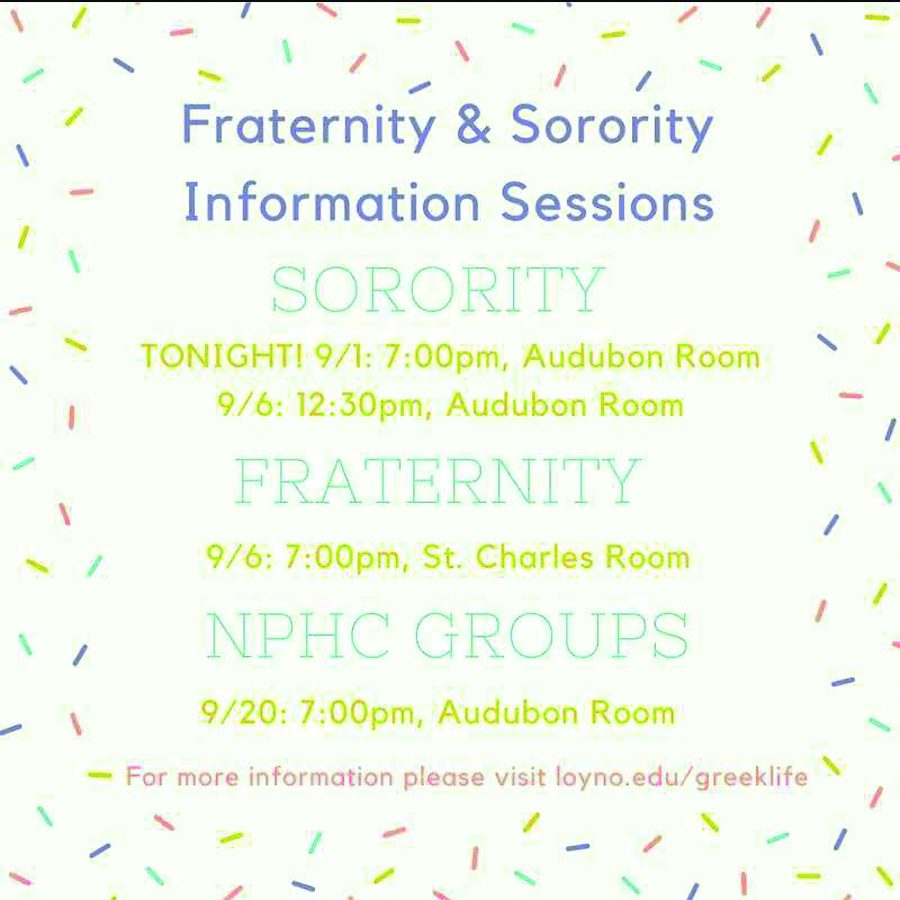




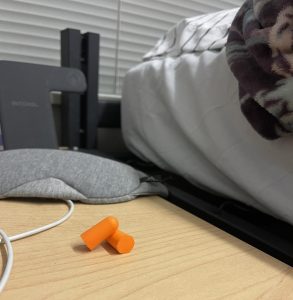
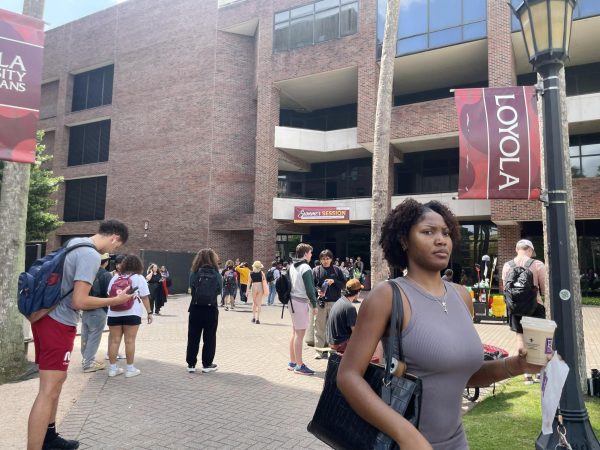
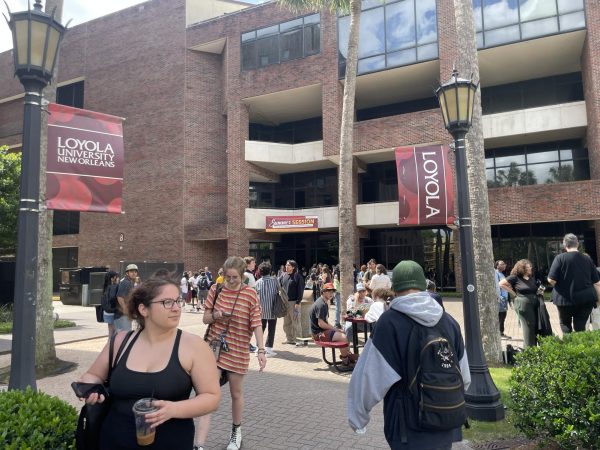

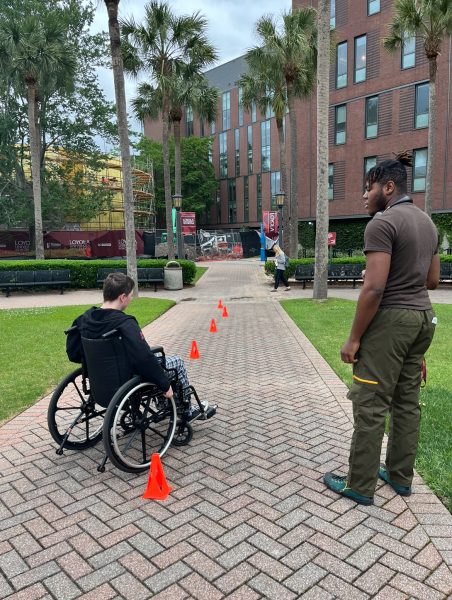


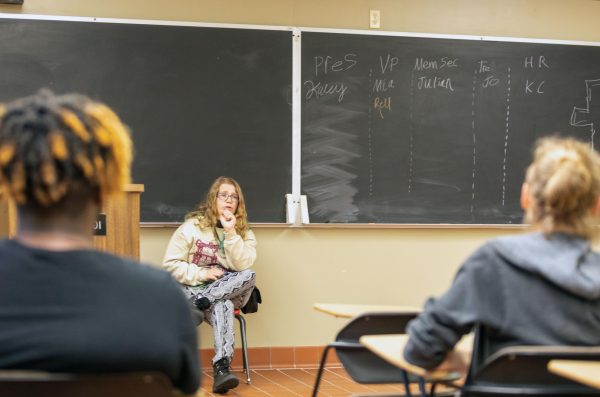
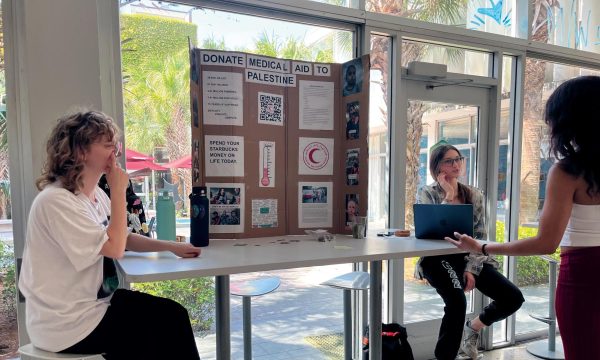
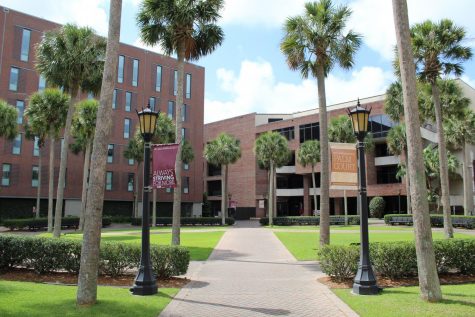
Alpha Class Movie • Sep 23, 2016 at 1:52 pm
The PC police are at it again.